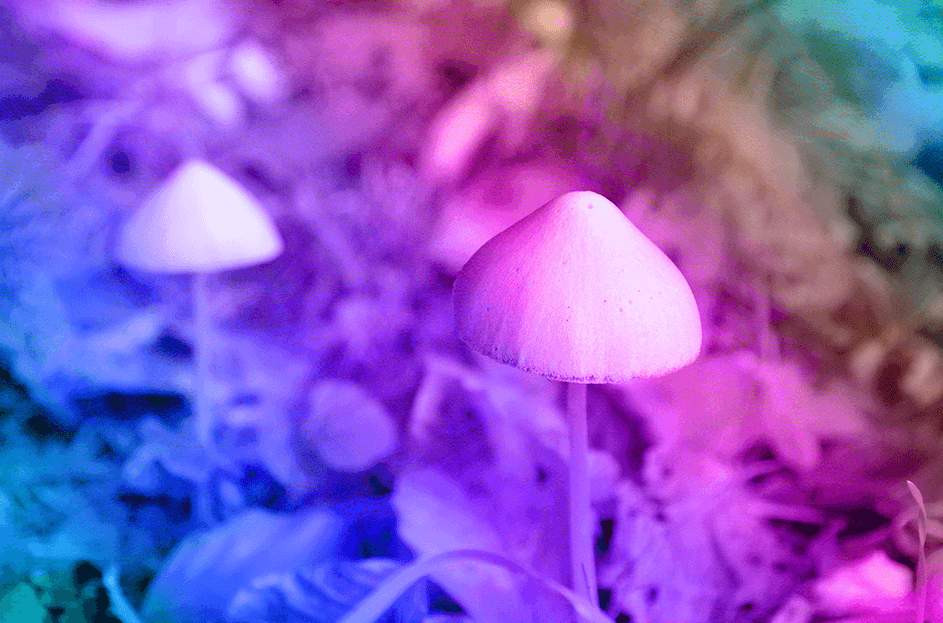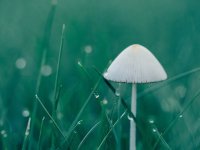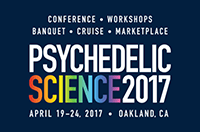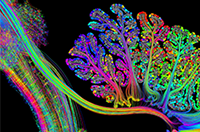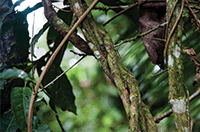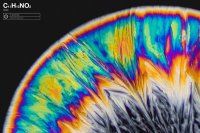
Could psilocybin reclaim a place in the psychiatrist’s toolkit?
Awareness of the therapeutic potential of psychedelics is just beginning to re-emerge. An increasing number of studies are publishing results that suggest that psilocybin and LSD, when combined with psychological counselling, could provide novel treatments for a wide range of common psychiatric disorders, including depression, anxiety, obsessive compulsive disorder, post-traumatic stress disorder and addiction.
The latest of these, published today in the Journal of Psychopharmacology by researchers at NYU Langone Medical Centre and John Hopkins University, present the most rigorous double blind studies with a psychedelic to date. Both the NYU study, which involved 29 patients, and the Johns Hopkins study with 51 patients, showed that a single moderate-to-high dose of psilocybin can lead to an immediate reduction in the depression and anxiety caused by cancer. Remarkably, the positive results endured for 6 months or more.
This research breaks new ground by showing that a single dose of a psychoactive substance, combined with psychological support, has the potential to produce long lasting positive effects in the majority of study participants. Currently, all there is on offer for those with a terminal diagnosis is psychotherapy and antidepressants to help alleviate their psychological symptoms. These can require weeks or months to take effect, can have unpleasant side effects, and don’t always produce the desired results.
Together with earlier studies – such as our own recently published Beckley/Imperial pilot study investigating the potential of psilocybin for treatment-resistant depression, which showed that psilocybin reduced depressive symptoms in all participants, with 42% of participants still depression-free after 3 months – this research will hopefully encourage researchers and funding bodies to further investigate how it is that a one-time treatment can have such a profound and long lasting effect.
An interesting feature of the Johns Hopkins research, that may help explain this, is the reported potential of psilocybin to elicit a “spiritual” or “mystical’ experience. In their pilot study of psilocybin-facilitated smoking addiction treatment, that the Beckley Foundation helped to initiate and sponsor, 80% of the smokers quit their habit, and were still not smoking at the 6 month follow up. Treatment success was significantly correlated with measures of mystical experience on session days, as well as retrospective ratings of personal meaning and spiritual significance of psilocybin sessions.
Many researchers shy away from such descriptions because they are not easily reconciled with current medical language. However, early psychedelic researchers such as Walter Pahnke, William Richards, and Stanislav Grof suggested that it is precisely because of psychedelics’ unique ability to facilitate powerful, and sometimes spiritual or mystical-type experiences that they are capable of producing positive results in addiction treatment as well as for end-of-life anxiety (Garcia-Romeu et al 2015). Several contemporary studies have supported this, demonstrating that in healthy individuals, psilocybin is capable of eliciting highly meaningful and spiritually significant experiences with lasting positive effects. (Griffiths, RR et al 2006,2008,2011; MacLean, K.A et al 2011).
Whether we use the term mystical, spiritual, powerful or profound, psychedelics such as psilocybin appear to reliably produce an experience with an existential component. It seems that when people report such an experience, it correlates with them having deeply transformed previously entrenched patterns of thoughts that either led to a depressive state or kept them repeating the same negative habits. Again our brain-imaging studies at the Beckley/Imperial Programme investigating the underlying effects of psilocybin and LSD, demonstrate a reduction of activity in the controlling default mode network, which results in a freeing up of communication in the rest of the brain, thereby shaking off the rigid patterns of thought which normally dominate.
Patients with a terminal illness have been able to re-frame life and death, be more accepting of their condition and transform the anguish associated with their illness. Smokers were able to refrain from smoking. In the Beckley/Imperial study, patients suffering from depression that had been unresponsive to conventional treatments for an average of 18 years, described their experiences as transformative, enabling them to have a new perspective on things that improved their state of mind and well-being.
Only further research will help us better understand the way in which psychedelics can facilitate an experience whose effect endures long after the drug has left the system. If the current restrictions on such research were lifted, by psychedelics being reclassified as a schedule 2 or 4 drug, as opposed to their current classification as a schedule 1 drug (maximum potential for harm and no medical use), this field could expand rapidly, potentially providing novel treatments for a wide range of common psychiatric disorders.
Hattie Wells and Amanda Feilding
Podcast
- All
Links
- All
Support
- All
BIPRP
- All
Science Talk
- All
Amanda's Talks
- All
- Video Talk
- Featured
- 2016 Onwards
- 2011-2015
- 2010 and Earlier
- Science Talk
- Policy Talk
One-pager
- All
Music
- All
Amanda Feilding
- All
Events
- All
Highlights
- All
Psilocybin for Depression
- All
Current
- All
Category
- All
- Science
- Policy
- Culture
Substance/Method
- All
- Opiates
- Novel Psychoactive Substances
- Meditation
- Trepanation
- LSD
- Psilocybin
- Cannabis/cannabinoids
- Ayahuasca/DMT
- Coca/Cocaine
- MDMA
Collaboration
- All
- Beckley/Brazil Research Programme
- Beckley/Maastricht Research Programme
- Exeter University
- ICEERS
- Beckley/Sant Pau Research Programme
- University College London
- New York University
- Cardiff University
- Madrid Computense University
- Ethnobotanicals Research Programme
- Freiburg University
- Medical Office for Psychiatry and Psychotherapy, Solothurn
- Beckley/Sechenov Institute Research programme
- Hannover Medical School
- Beckley/Imperial Research Programme
- King's College London
- Johns Hopkins University
Clinical Application
- All
- Depression
- Addictions
- Anxiety
- Psychosis
- PTSD
- Cancer
- Cluster Headaches
Policy Focus
- All
- Policy Reports
- Advisory Work
- Seminar Series
- Advocacy/Campaigns
Type of publication
- All
- Original research
- Report
- Review
- Opinion/Correspondence
- Book
- Book chapter
- Conference abstract
- Petition/campaign
Search type
